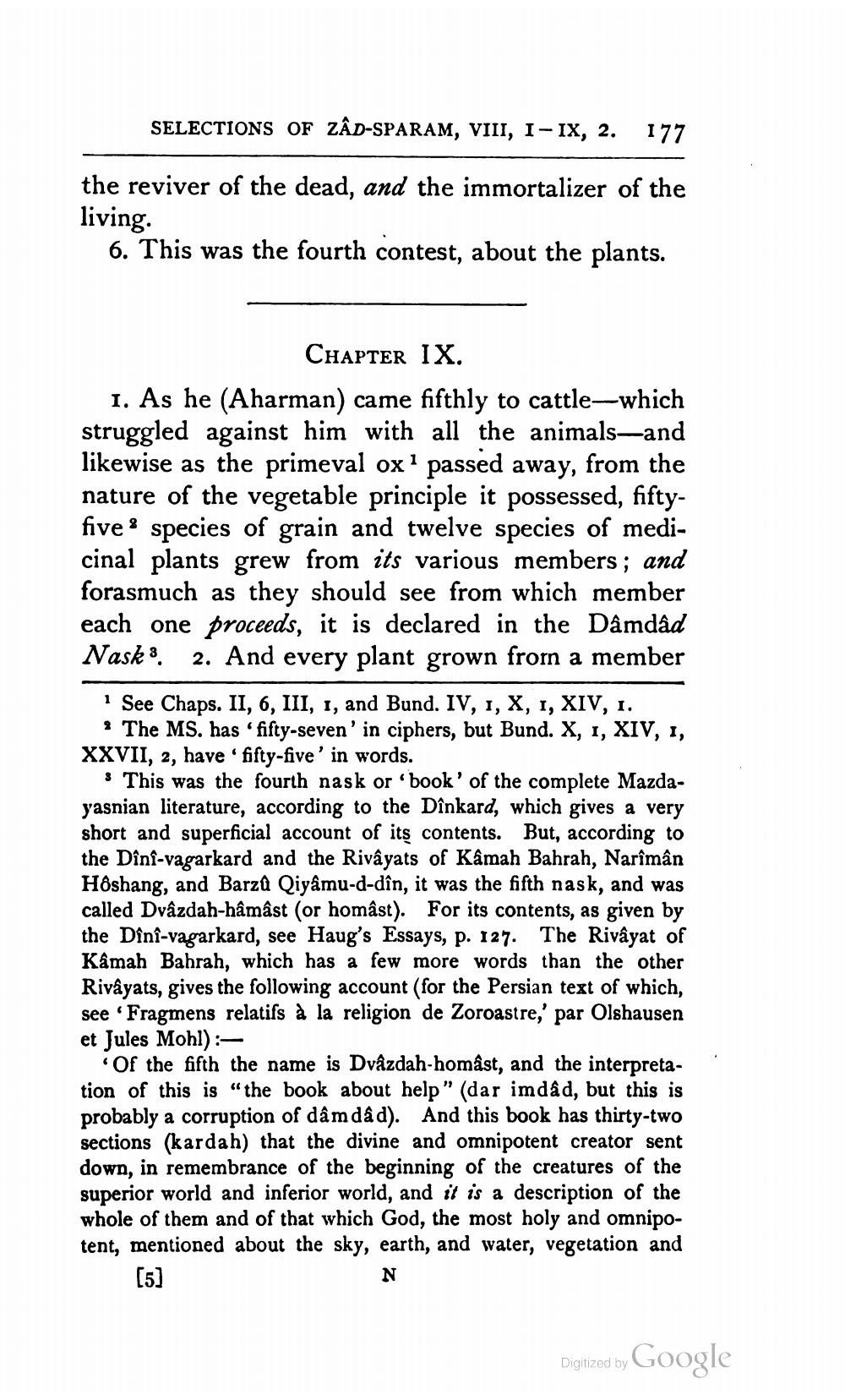________________
SELECTIONS OF ZÂD-SPARAM, VIII, I-IX, 2.
177
the reviver of the dead, and the immortalizer of the living.
6. This was the fourth contest, about the plants.
CHAPTER IX. 1. As he (Aharman) came fifthly to cattle—which struggled against him with all the animals—and likewise as the primeval ox' passed away, from the nature of the vegetable principle it possessed, fiftyfive species of grain and twelve species of medicinal plants grew from its various members; and forasmuch as they should see from which member each one proceeds, it is declared in the Dâmdâd Nasks 2. And every plant grown from a member
the Dînî-vagarkard and
See Chaps. II, 6, III, 1, and Bund. IV, 1, X, 1, XIV, 1. · The MS. has ‘fifty-seven'in ciphers, but Bund. X, 1, XIV, 1, XXVII, 2, have fifty-five' in words.
* This was the fourth nask or 'book' of the complete Mazdayasnian literature, according to the Dînkard, which gives a very short and superficial account of its contents. But, according to the Dini-va garkard and the Rivâyats of Kâmah Bahrah. Narîmân Hoshang, and Barza Qiyamu-d-dîn, it was the fifth nask, and was called Dvâzdah-hâmâst (or homâst). For its contents, as given by the Dînî-vagarkard, see Haug's Essays, p. 127. The Rivâyat of Kâmah Bahrah, which has a few more words than the other Rivâyats, gives the following account (for the Persian text of which, see 'Fragmens relatifs à la religion de Zoroastre,' par Olshausen et Jules Mohl) :
Of the fifth the name is Dvâzdah-homâst, and the interpretation of this is “the book about help" (dar imdâd, but this is probably a corruption of dâm dad). And this book has thirty-two sections (kardah) that the divine and omnipotent creator sent down, in remembrance of the beginning of the creatures of the superior world and inferior world, and it is a description of the whole of them and of that which God, the most holy and omnipotent, mentioned about the sky, earth, and water, vegetation and
[5]
Digitized by
Digitized by Google




